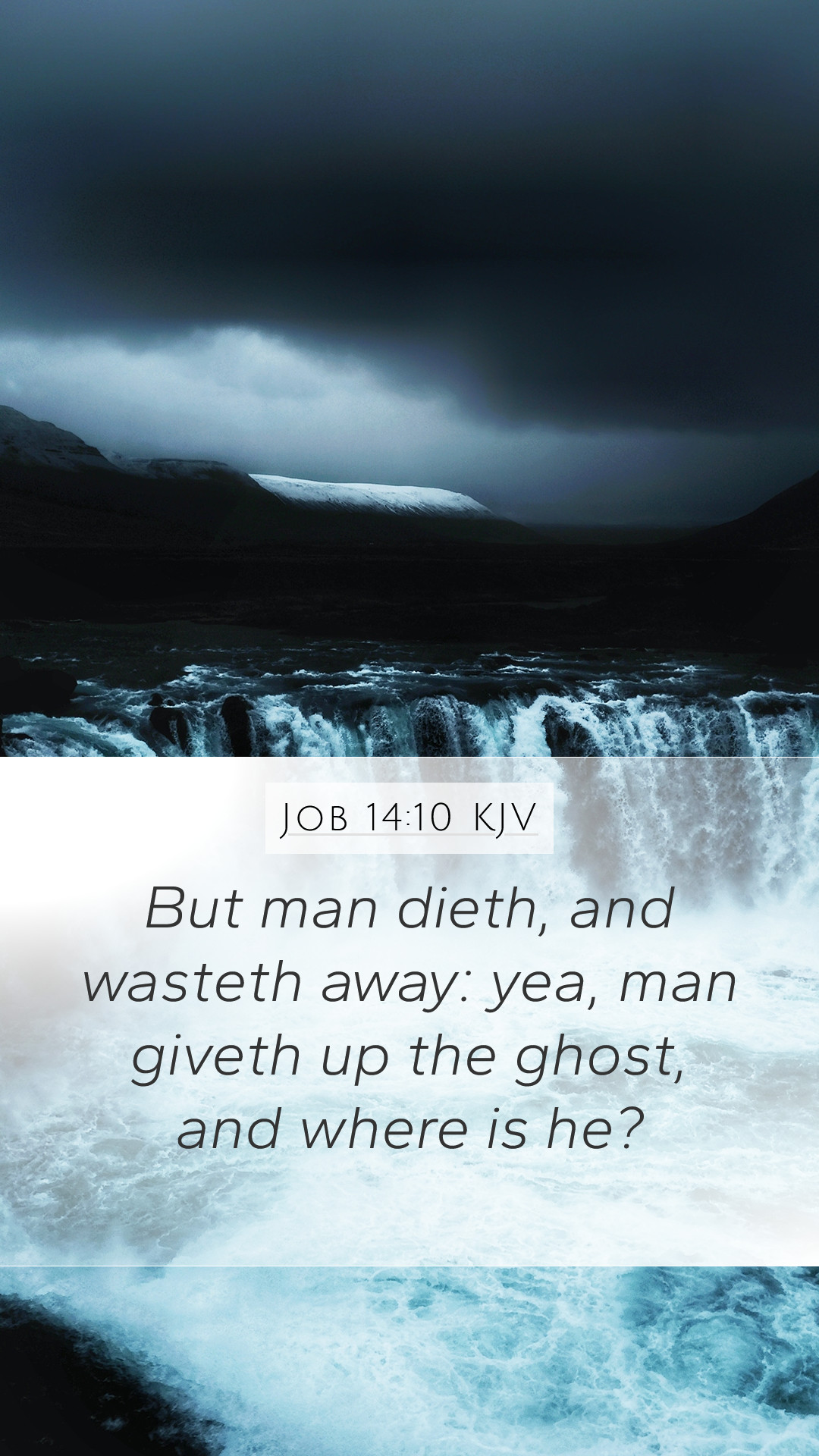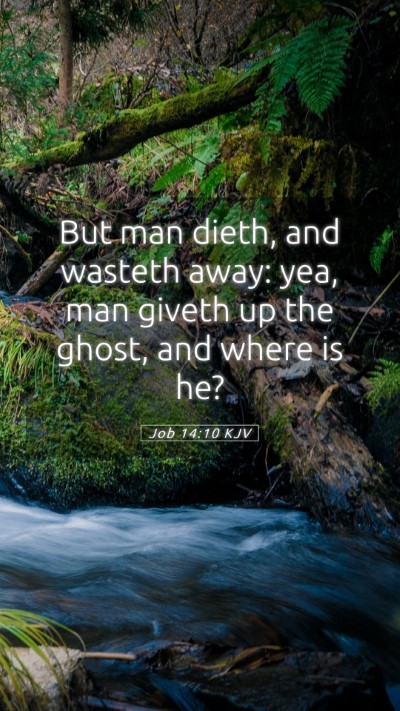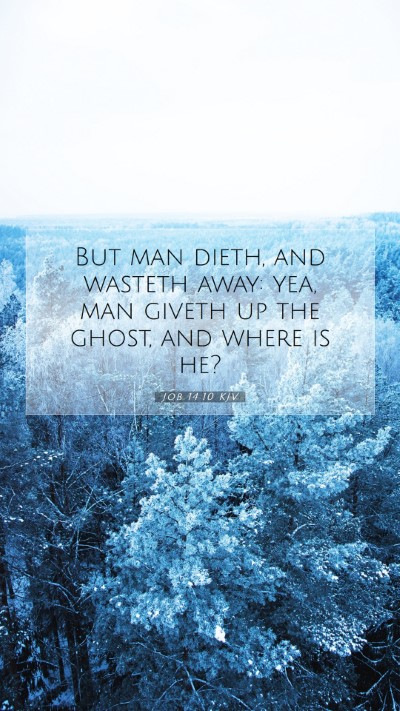Old Testament
Genesis Exodus Leviticus Numbers Deuteronomy Joshua Judges Ruth 1 Samuel 2 Samuel 1 Kings 2 Kings 1 Chronicles 2 Chronicles Ezra Nehemiah Esther Job Psalms Proverbs Ecclesiastes Song of Solomon Isaiah Jeremiah Lamentations Ezekiel Daniel Hosea Joel Amos Obadiah Jonah Micah Nahum Habakkuk Zephaniah Haggai Zechariah MalachiJob 14:10 Meaning
What is the meaning of Job 14:10?
But man dieth, and wasteth away: yea, man giveth up the ghost, and where is he?
Job 14:10 Bible Verse Meaning
Understanding Job 14:10 - Bible Verse Meanings and Interpretations
Job 14:10 states: "But man dies and is laid low; he breathes his last, and where is he?" This verse poses profound questions regarding the nature of life, death, and what follows, providing rich material for Bible verse commentary, scripture analysis, and Biblical exegesis.
Summary of Insights from Public Domain Commentaries
-
Matthew Henry:
Henry emphasizes the solemnity of death and the inevitability of mortality. He points out that Job articulates a universal truth: all humanity faces death. In his commentary, he notes the uncertainty of life and the finality of death, which should prompt individuals to reflect on their lives and their relationship with God.
-
Albert Barnes:
Barnes highlights the transient nature of human existence. He explains that while man may live, eventually he faces death, and afterward, the question arises of what becomes of him. Barnes draws attention to the philosophical implications of mortality and encourages readers to consider their eternal destiny.
-
Adam Clarke:
Clarke delves into the meaning of the verse, providing a deeper exploration of the human condition. He emphasizes the emotional weight of Job’s words, reflecting on the despair and hopelessness often felt in the face of death. Clarke suggests that this verse speaks to a longing for understanding and a desire for hope beyond death.
Thematic Analysis
This verse encompasses several key themes that are central to a comprehensive understanding of Scripture: the inevitability of death, the uncertainty of what comes next, and the existential reflections that arise from contemplating one's mortality. Each commentator brings a unique perspective that adds to our collective Bible study insights.
Death and Human Mortality
Job's lament reflects a profound truth about human life — it is fleeting. The context of this verse, delivered during Job's lamentations about his suffering, illustrates the despair that can accompany the recognition of mortality. This resonates with readers seeking to grasp the meaning of Bible verses concerning life and death.
Implications for Daily Life
Understanding this verse can influence how individuals approach life. Acknowledgment of mortality can lead to deeper appreciation of life, encouraging meaningful relationships and pursuits. For those involved in Bible study groups or online Bible study, discussing this verse can foster valuable conversations about the significance of life choices.
Cross References
- Ecclesiastes 3:2: "A time to be born, and a time to die..." - Discusses the natural order of life's cycles.
- Psalm 90:10: "The years of our life are seventy, or even by reason of strength eighty..." - Reflects on the brevity of human life.
- Hebrews 9:27: "And just as it is appointed for man to die once, and after that comes judgment..." - Addresses the certainty of death and impending judgment.
Conclusion
The exploration of Job 14:10 offers rich material for understanding not only the specifics of Job's suffering but also the greater existential questions that confront humanity. This verse serves as a powerful reminder of our mortality and invites reflective consideration of what lies beyond this life.
In summary, the explanation of Bible verses like Job 14:10 helps individuals to confront the realities of existence with faith and understanding. Through Bible study tools and Bible study resources, believers can navigate the complexities of Scripture, gaining insight into how to interpret Bible verses meaningfully.


